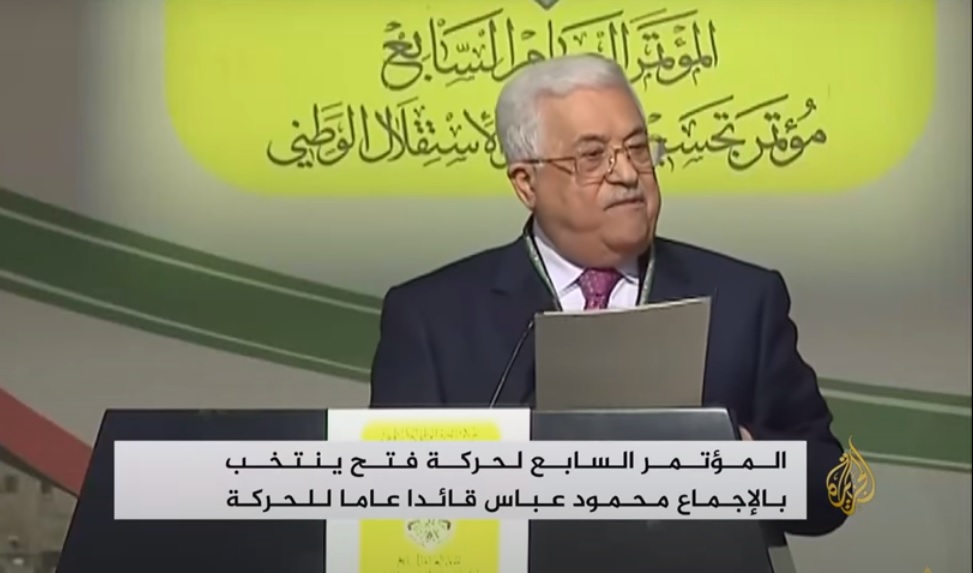PA Chairman Mahmoud Abbas has launched a military operation, named “Defense of the Homeland,” targeting armed groups from Hamas and Islamic Jihad in the northern Samaria region, particularly within the Jenin refugee camp.
The operation, now in its ninth day, is being framed by Abbas as a campaign against lawlessness rather than an assault on “freedom and independence fighters.”
Anwar Rajab, a spokesman for the PA, has characterized the armed factions in Jenin as mercenaries serving a foreign agenda, hinting at Iranian influence.
He stated, “What happened in Gaza will not happen in the West Bank; we will prevent it.”
Rajab also criticized these factions, questioning the legitimacy of a resistance movement that endangers Palestinian civilians with explosives.
PR Campaign by the PA
To bolster support, the PA dispatched senior officials to Jenin, including Majed Faraj, the head of Palestinian intelligence, Nidal Abu Dohan, commander of the security forces, and Interior Minister Ziad Hab al-Rich.
A special operations room was established, and images of security personnel combating terrorists in the Jenin refugee camp—a notorious hub for militant activity—were disseminated.
During the operation, PA security forces reportedly killed two prominent armed militants, including Yazid Ja’isa, the commander of Islamic Jihad’s “Jenin Battalion.”
Goals of the Operation
Security experts suggest Abbas has multiple motivations for this operation:
- Preserving Power Amidst Hamas Threats: Abbas seeks to avoid a “Bashar al-Assad effect,” referencing fears that Hamas might incite Palestinians in the West Bank to rise against the PA, as they did in Gaza in 2007. On the Palestinian street, the PA is often viewed as corrupt and subservient to Israeli security interests.
- Catching U.S. Attention: Abbas aims to send a message to U.S. President-elect Donald Trump, emphasizing his fight against Hamas and Islamic Jihad—groups backed by Iran—and asserting the PA’s authority to govern Gaza post-conflict.
Reports indicate Abbas has maintained a backchannel to Trump through Lebanese businessman Masad Bolus.
- Demonstrating Governance to the International Community: By showcasing a functioning security apparatus, Abbas hopes to dismiss calls for PA reform or the appointment of a deputy chairman.
Challenges and Criticism
PA officials claim Abbas has directed his forces to take full control of the Jenin refugee camp, intending to expand operations to Nablus and Tulkarm to combat armed factions.
The PA blames Hamas for bringing disaster upon Gaza on October 7 and for attempting to destabilize the West Bank.
However, Hamas leaders, such as Mahmoud al-Mardawi, have condemned the PA’s actions, describing them as “political suicide” and inconsistent with the ethos of resistance.
Israeli Perspective
Israeli security officials remain unconvinced of the PA’s ability to neutralize terrorist networks in northern Samaria.
Over the past three years, they claim, the PA has allowed Hamas and Islamic Jihad to entrench themselves, creating a “terrorist monster” in refugee camps and rural areas.
Current estimates suggest there are several hundred armed militants in the camps and approximately 1,000 in the surrounding areas.
The IDF’s previous operation in August, dubbed “Summer Camps,” failed to dismantle the terror infrastructure in northern Samaria, as most militants fled to rural areas.
This has led to calls for a more comprehensive military campaign, involving two divisions, to eradicate the entrenched terrorist threat in the region.
Conclusion
The “Operation for the Defense of the Homeland” reflects Mahmoud Abbas’s attempt to consolidate control and address growing challenges to his authority.
However, doubts about the PA’s effectiveness and intentions, coupled with the entrenched presence of militant groups, suggest that the road to stability in northern Samaria remains fraught with challenges.
For now, the PA’s efforts seem as much about optics and survival as they are about substantive change.




